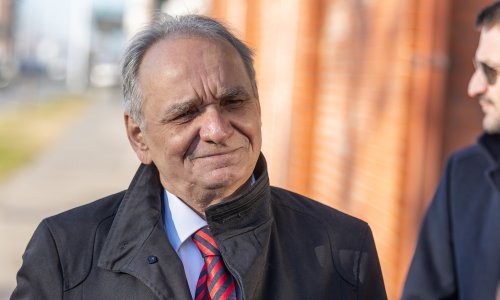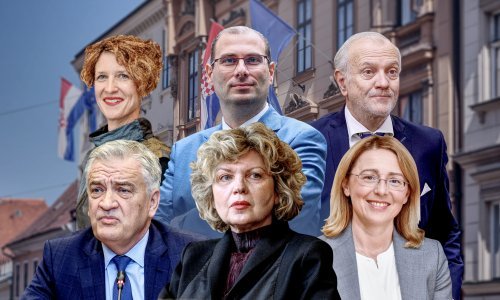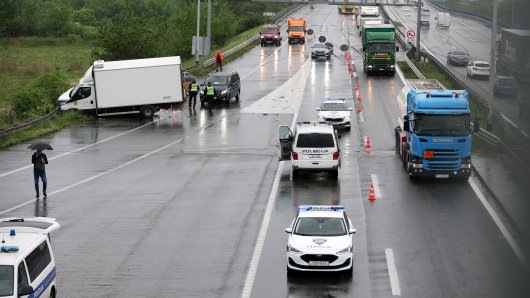Croatian Justice Minister Drazen Bosnjakovic said on Tuesday that he fully trusted Croatian judges and that they were making decisions free of any political influence.
Bosnjakovic made the statement at a news conference held at the Justice Ministry, when asked to comment on the latest developments in the country, with the ruling coalition being accused of exerting influence on the judiciary.
Answering a reporter's question, the minister said that Deputy Parliament Speaker Vladimir Seks was not influencing the judiciary nor was he trying to do so.
"I can definitely guarantee, as far as he is concerned, that he is not influencing nor is he trying to influence the judiciary. The Croatian judiciary is entirely independent," Bosnjakovic said.
He would not comment on statements by former Deputy Prime Minister Damir Polancec that Seks had openly exerted influence on Constitutional Court judges as well as during the adoption of some laws.
Asked to comment on the expeditiousness of anti-corruption courts in dealing with cases related to Polancec, Bosnjakovic said that those courts were established to expedite the prosecution of corruption and organised crime cases.
He disagreed with a remark from the press that on the other hand, there was no progress in the case of the green market operator Trznice Rijeka.
That is a much more complex case, Bosnjakovic said, adding that that case required expert analyses and different investigative approaches.
Asked about the work of the government's task force in charge of the privatisation of the oil and gas company INA, of which he had been a member, Bosnjakovic said that Prime Minister Jadranka Kosor had never attended any session of that task force.
Former Prime Minister Ivo Sanader last week told a parliamentary commission investigating INA's privatisation that Kosor had participated in the final stage of preparations to modify INA's shareholders agreement.
The minister went on to say that he did not expect the latest developments in the country to affect the closing of Chapter 23, Judiciary and Fundamental Rights, in Croatia's EU entry talks.
He added that Croatia had done a big job, primarily in the fight against corruption.
"I don't expect the latest developments in the country to cause any problems with Chapter 23. We have made significant progress in the judiciary, from the introduction of a network of new courts to procedural law," Bosnjakovic said, adding that a growing number of cases and verdicts was being recorded in the fight against corruption.
The head of the Department for the EU and International Cooperation, Kristian Turkalj, said that with regard to the fulfilment of the criteria for Chapter 23, Croatia was being "compared to the best in Europe".
"The bar has been raised high... we plan everything to be completed by the end of the year," he said.
The chief prosecutor of the International Criminal Tribunal for the former Yugoslavia (ICTY), Serge Brammertz, will arrive in Zagreb for a two-day visit on Wednesday.
Bosnjakovic said Brammertz would arrive for a regular visit before submitting a report to the UN Security Council on Croatia's cooperation with the tribunal.
The minister added that he did not expect any additional questions to be raised regarding Croatia's cooperation with the ICTY.




































